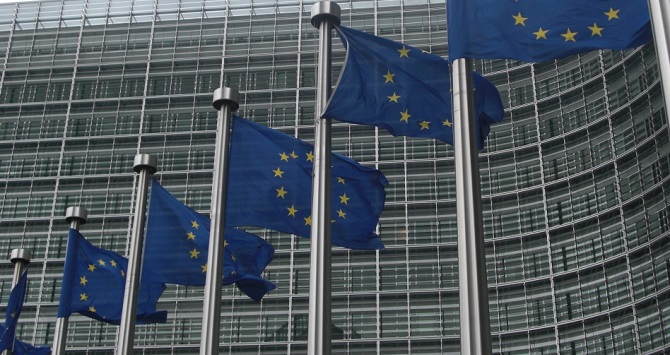 As the Parliamentary Select Committee on the Future of the BBC continues to hear evidence on what shape the Royal Charter should take when it’s renewed in 2016 with a session this past Tuesday, Ronan Costello, an MSc student at the LSE suggests making the licence fee income-based as a way for the BBC to raise funds and connect more to its public.
As the Parliamentary Select Committee on the Future of the BBC continues to hear evidence on what shape the Royal Charter should take when it’s renewed in 2016 with a session this past Tuesday, Ronan Costello, an MSc student at the LSE suggests making the licence fee income-based as a way for the BBC to raise funds and connect more to its public.
The BBC should consider introducing a graded licence fee system based on household income. At present, the licence fee is set at £145.50 for all households, regardless of income. It’s a flat tax. This raises just over £3.6 billion for both the BBC (and The BBC World Service), with the rest of its revenue coming from commercial ventures –its wholy owned subsidiary, BBC Worldwide Ltd.
The BBC prides itself amongst many things, on being available to all citizens. However, I would argue that it needs to make changes to connect with and serve a public that is increasingly dissatisfied with existing inequalities. Introducing a graded system, which would see the licence fee go up for those who could afford it, may not be a popular move, but there are ways in which the case could convincingly be made for its introduction. It involves capitalising on the public’s general approval of the BBC, taking advantage of an increasing public awareness of income inequality and the Corporation making amends for recent failures.
- Capitalising on Approval Ratings: The BBC touts its various approval ratings. It says in its evidence to the inquiry that it excels on quality, “with more UK viewers reporting that BBC One and BBC Two show well-made, high-quality programmes,” and that it is seen as an international leader in broadcasting, “outperform[ing] all international rivals, with BBC One rated highest on quality out of 66 major TV channels examined globally and BBC Two in third place.” On trust and accuracy, its news service is rated positively by 58% of the population. It is also regarded as the most impartial by 49%. Its nearest competitor, ITV, is at 14%, 13% and 14% in these categories. While these ratings alone could be used to justify an increase in the licence fee for those who can afford it, the polling figures on attitudes to the fee itself are yet more encouraging. A poll carried out by IPSOS MORI in 2013 reported that 47% of those surveyed said that the licence fee was the preferred way to the fund the BBC, handily beating advertising and subscription. Another poll by IPSOS MORI, this time in conjunction with Terrington and Company, reports that 70% of those surveyed said that they were prepared to pay the current licence fee or more.
- Public Awareness of Income Inequality: A more progressive licence fee would also chime well with an emerging political sentiment in the West, that of the desire for equality and fairness in matters of income and wealth distribution. Thomas Piketty’s book, “Capital in the Twenty-First Century”, has given academic heft to this movement. There is now substantial distaste for revenue generating measures that are flat and ungraded and which necessarily inflict hardship on lower income citizens. Examples of these measures include the infamous “pasty tax”, the bedroom tax, the scrapping of both the disability living allowance and the 50p tax rate for high earners. A move in the opposite direction by the BBC, one of the institutions that defines Britain, would hint at a new, more progressive era.
- Making Amends for Failures: As for making amends for recent failures, we should look to the pay-offs received by former BBC executives. These pay-offs are an extension of a culture that is most closely identified with the financial sector and the golden parachutes offered to banking executives who had an instrumental hand in the financial crisis of 2008. These same bankers are now reviled by many in the middle and working classes. That the BBC is synonymous with this conduct creates a very real incentive for its management to take bold steps that clearly distance itself from an overindulgent sector with very little evidence of a social conscience. The Director General, Tony Hall, has said that pay-offs will be limited to £150,000 in future, but this has very little effect on the structural working of the BBC beyond offering a cursory gesture of contrition in response to public anger.
Payment of the licence fee is the primary way in which the public interacts with the BBC. A fundamental change to it, reflecting progressive values, would suggest a BBC that has broken with the excesses of the previous decade, recognised a trend that will likely inform broader economic policy decisions in years to come, and acted accordingly. A pioneering move, even, and one that will surely bring it closer to the estranged who see exclusivity in place of universality.
This article gives the views of the author and does not represent the position of the LSE Media Policy Project blog, nor of the London School of Economics.






The TV Licence Tax is surely an outmoded concept in the digital age when the very definitions of TVs and TV broadcasts are becoming blurred. Fair enough if it was a licence to watch BBC content, but to make it a criminal offence to watch any live broadcast over the internet without a TV Licence is absurd.
Anything other than a complete rethink of the BBC’s funding mechanism is just rearranging the deck chairs on the Titanic.